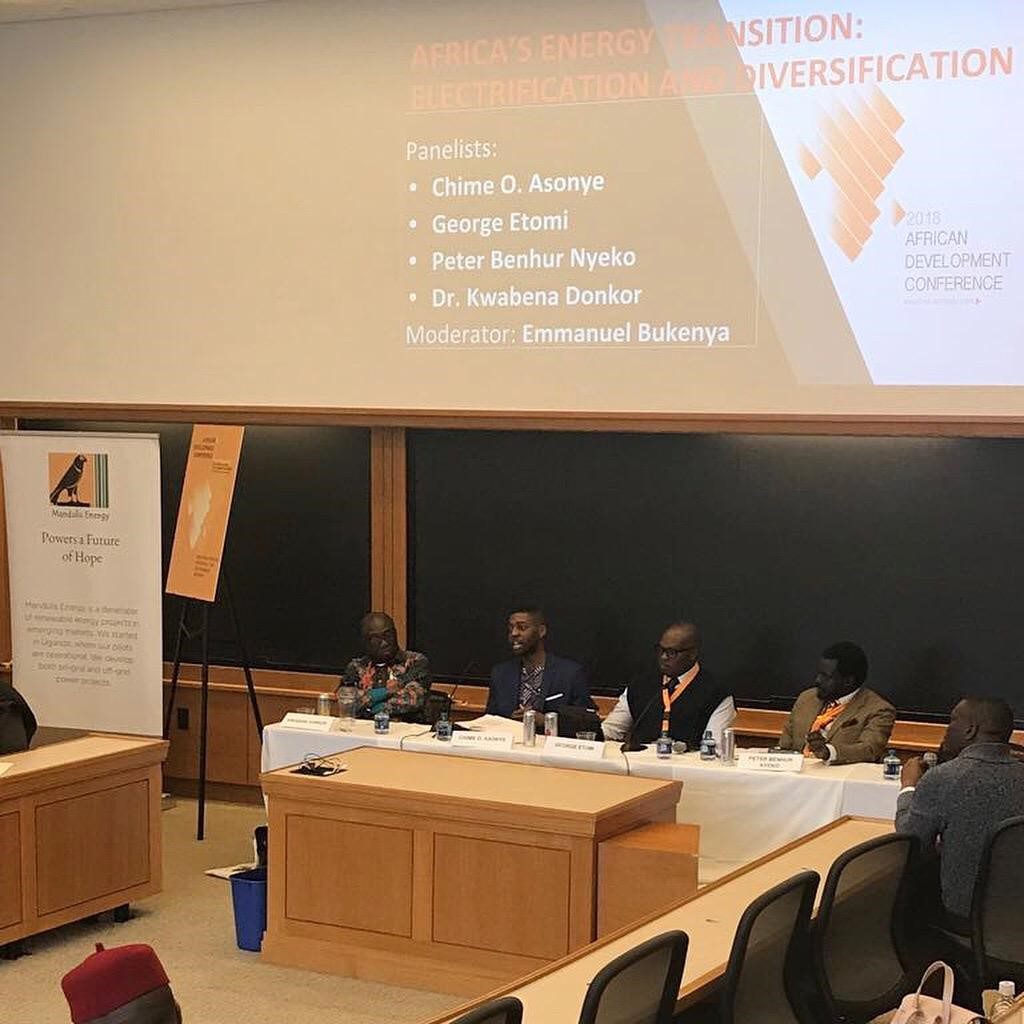
PIND’s Analysis and Advocacy Manager, Chime Asonye, discussing Africa’s Energy Transition at the Harvard Development Conference in New York.
On March 23 – 24, we were on a panel at the 9th Annual Harvard Development Conference held at Harvard University, Massachusetts, USA, to discuss innovative business models for delivering energy to underserved communities and ways of influencing government policies toward energy efficiency in the continent.
The African Development Conference (ADC) has over the years explored creative and collaborative approaches to opportunities and challenges in Africa, while emphasizing the enduring and dynamic concept of ‘Pan-Africanism.’ The theme for this year’s conference was ‘Our Time, Our Vision: Wielding Africa’s Potential for Sustainable Growth’.
The inaugural plenary session at the conference was an avenue to discuss Africa’s role in global value chains; a session aptly titled ‘Made in Africa’: Dialogue on Africa in Global Value Chains. After that, the assembly broke into panel sessions on Democracy and Good Governance, Technology and Development, Economic Partnerships and Personal Narratives. Our Analysis and Advocacy Manager, Chime Asonye, spoke on a development panel that addressed the underlying issues in ‘Africa’s Energy Transition: Electrification and Diversification’. The panel looked at novel business models coming out of Africa and how they are quickly delivering clean and affordable electricity to underserved communities.
We used the platform to share the methodology and findings from a specific business model pilot in Agbede, Edo State, where alternative technology solutions were proffered to curb the high dependence on petrol generators. This was a direct result of the Niger Delta Electricity Scoping Study carried out in 2015 by us and our U.S based strategic partner, Niger Delta Partnership Initiative (NDPI), in partnership with Development Alternatives Incorporated (DAI) Extractives Group. The study was aimed at finding reliable information on current market dynamics of the power sector in the Niger Delta and identifying opportunities (if any) for PIND and NDPI to engage in the sector to help bridge the gap that is currently a strong impediment to private sector market growth and productivity.
We went further to discuss our partnership with the Nigeria Economic Summit Group (NESG) on Low Carbon Investments in the region. Deliberations at the conference also explored government policies that are pushing the continent to (at least) double the amount of renewable energy in the energy mix and dedicating resources to double the rate of energy efficiency in the energy system.
As part of our 2015 – 2019 strategy, we are driving research and design of the projects we co-fund to ensure the application of analysis in addressing the systemic constraints within the identified market systems and cross learning between projects.
[FinalTilesGallery id=’12’]



